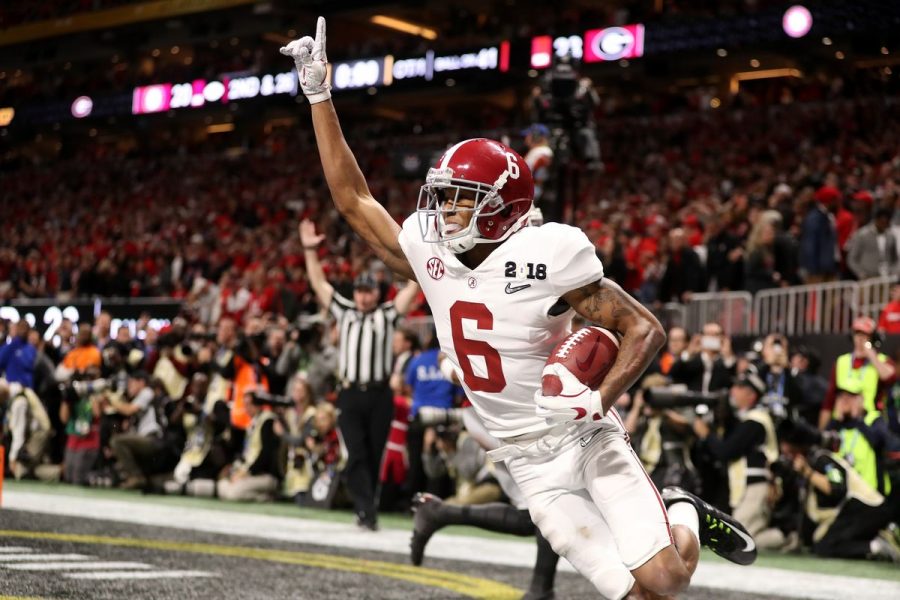Crimson Tide rolls over Bulldogs
and there was no better way to kick it off than with the top four teams in the country going for the ultimate prize in all of College Football. College Football’s prime time of year is always around the New Year. When the regular season concluded, all of the the talk around the country was which teams will be the four teams to make it to the playoffs and compete for the national championship?
Sitting at number one were the reigning national champions, the Clemson Tigers, lead by coach Dabo Swinney. With a fantastic defense, the defending champs looked to go back to back. Coming off an impressive victory against the Miami Hurricanes in the ACC Championship game with a final score of 38-3, Clemson truly showed their dominance reassuring the nation why they should be ranked number one. They headed into the playoff with a 12-1 record, with their only loss being to Pittsburgh.
Coming in as top team, Clemson had to square off against the Alabama Crimson Tide for the third year in a row. Alabama, coached by one of the best coaches all time, Nick Saban, set out to prove all of their doubters wrong, as some people were not convinced that they truly deserved the number four ranking. Alabama’s strength of schedule and lacking of a conference championship lead many to wonder if this year’s team was as solid as years’ past. Nevertheless, they split the last two meetings with Clemson winning last year, for the National Championship.
Unlike the last two years where these two teams met in the Championship game itself, this game was to clinch a berth in the title game. Either way, a lot was at stake as these two programs collided yet again to prove they were superior.The Crimson Tide would roll over top seeded Clemson in their matchup due to a great defensive performance.
The winner of this game would ultimately advance to play the winner of the Rose Bowl. In this star studded matchup between the Oklahoma Sooners, and the Georgia Bulldogs,the leadership from each team’s veterans was a huge factor. The Sooners, coming off a convincing 41-17 victory over the TCU Horned Frogs, in the Big 12 Championship game, they undoubtedly looked to be serious contenders in winning the National Championship. In doing so, they would have to knock off the SEC champions, the Georgia Bulldogs. Georgia, following a dominant 28-7 performance, defeated the Auburn Tigers and clinching the number three position in the playoff.
The Georgia defense would have its toughest task of the season as Heisman favorite, and quarterback of the Sooners, Baker Mayfield, looked to shred them apart. This was not the case as the Bulldogs’ two-headed monster, consisting of Nick Chubb and Sony Michel, two of the leading rushers in the school’s history, both played great games in a comeback effort. By a final score of 54-48, it was an offensive shootout, which ended up being high scoring.
Both head coaches, Kirby Smart of Georgia, and Lincoln Riley of Oklahoma, have only three seasons between them as head coaches. A thrilling matchup will determine who goes to the National Championship and potentially the grandest prize college football has to offer. Each and every team is extremely well coached, loaded with talent and had a great chance to become eventual champions, but there could only be one to determine the big dog in college football.
The championship game wound up being an all SEC matchup. Georgia dominated throughout the majority of the first half, leading 13-0 after the second quarter came to its conclusion. Alabama would have to make a change and put in freshman quarterback, Tua Tagovailoa. The freshman phenom would march his team up and down the field, scoring three touchdowns including the game winner in overtime, bringing the Crimson Tide another title. With a final score of 26-23 this was one of the most exciting championship games in recent memory.


